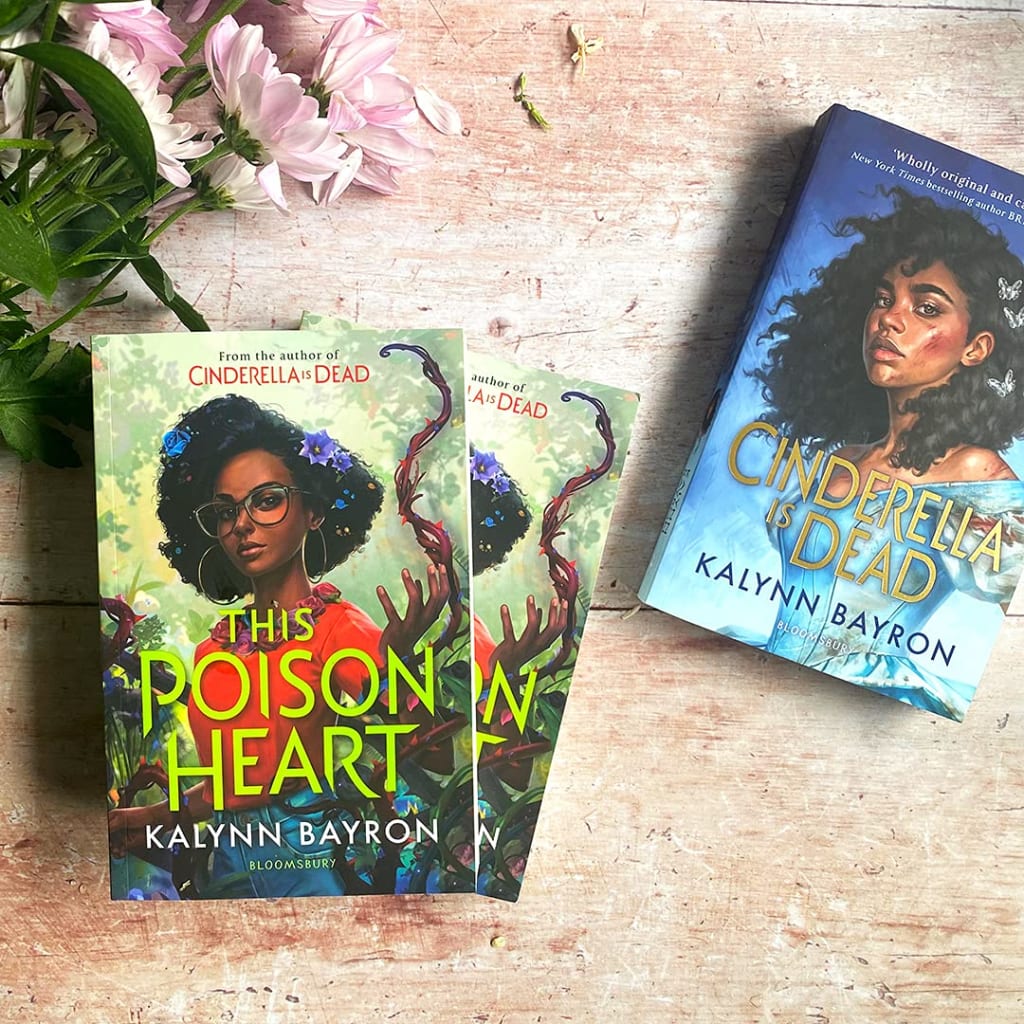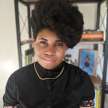Book Review: This Poison Heart by Kalynn Bayron
The book is beautiful because of the world it proposes, both in the realms of fantasy and reality.

I love fairy tales, always have. By the time I was four years old, I had Hansel and Gretel memorized. I own a leather-bound complete collection of Grimm fairy tales, a secondary book of tales that includes stories from Hans Christian Anderson, and a collection of favorite African folk tales as selected by Nelson Mandela.
My deep interest in fairy tales as a kid led seamlessly into a fascination with the fantasy genre, starting with Gail Carson Levine, seeping into Libba Bray and Holly Black. Some were good, some were awful. Very few were diverse (gotta give some points to Libba though for the effort).
And now here we are, in 2022, with something REALLY excited to look forward to in the genre. I'm talking about Kalynn Bayron and her short, but excellent list of books that are rooted in fairy tales, mythology, and fantasy, and feature Black LGBTQ characters as the protagonists. Both of her published books, Cinderella is Dead and This Poison Heart are beautiful, but for the sake of this review, I'll focus on This Poison Heart.
Overall thought? This book is stunning. It's well written, moves forward with a steady hand and with enough action to keep the reader engaged, set a solid magic system foundation in place, and features a set of characters that are not only likable but lovable. The story follows a teenage girl named Briseis with a strange power over plants. After a death in her family, she and her parents move to upstate New York and she quickly begins to find out where it comes from and how it has impacted her family and her future.
That's really a very simple overview of this book, but I don't want to say more in case I spoil it; that would be a shame. What I will say is that this book touched my heart. Briseis' parents are women - black queer women, thriving, loving one another, and just living. Whether the small family is in Brooklyn or upstate, people don't pay the orientation of Briseis' parents any mind, it's normalized. Again, they love each other, they love Briseis, and they are allowed to just live.
While reading this book, part of me wanted to cry. As a queer black woman-ish person born literally in 1990, I'm old enough to know how hard it was (and in many places still is) to be in a queer relationship and just be able to live, let alone have that be represented in a YA fantasy book. I wish I had a fantasy book like this growing up, a book that represented hope, gave me role models, and provided a story that I could easily see myself in. Even now as an adult, this book gave me hope, not just for me, but for all the nerdy queer Black kids out there looking for characters that align with who they are. While there is some sorrow represented in the book, there are also mounds on top of mounds of black queer joy here too, and the kind of love that every kid should feel from their parents, no matter who they are.
In my own work as a placemaker on a project I call Constellation, I am attempting to create stories outside of such normative struggles as trying to find health care, having access to fresh, healthy food and water, gender/sexuality discrimination, and affordable housing. By ensuring that these things are taken care of, I am able to work on stories that speak to the human experience instead of on basic need struggles. By normalizing Briseis' family situation, Bayron was more able to focus on the storytelling, leaning into the fantasy and the plot. That by itself led to richer, more full storytelling, unhampered by any coming out or sexuality-based trauma. I honestly think that's a huge reason as to why the storytelling is so well done. Again, it is a very well-written book, one of the best (and maybe actually the best) fantasy books I've ever read. The characters are allowed to be diverse AND themselves, and it makes space for development in the places where it counts.
Usually, when I think about beautiful writing, I think about books and articles that lean into prose. This Poison Heart does not lean into prose. It is not poetic. It is not stuffy literature. The book is beautiful because of the world it proposes, both in the realms of fantasy and reality. Bayron looked at what was available and said, "we can do better". And then she did it, offering to the world, and more importantly to Black Queer folks like me, a fantasy that I could believe in.
About the Creator
Camille Ora-Nicole
Hi! I'm a writer, artist, placemaker, and producer from Southern California. When I'm not writing, I'm drawing, and if i'm not drawing I'm working on a project, and if not doing any of that, i'm Netflix and chillin'. IG: @oracami_studio






Comments
There are no comments for this story
Be the first to respond and start the conversation.